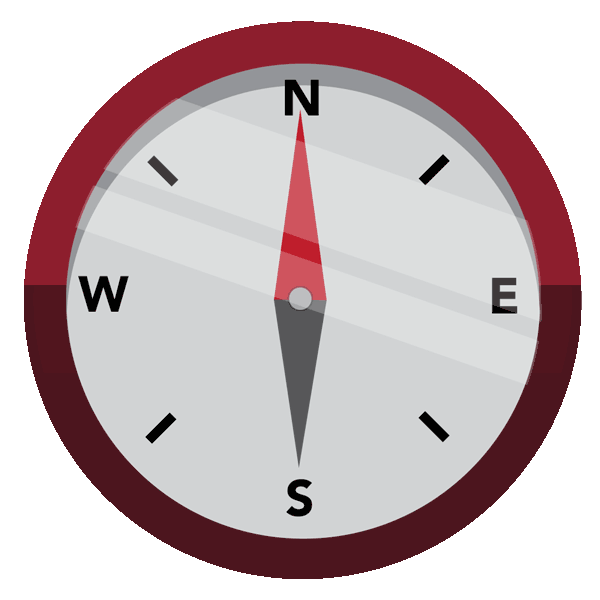
Student Services Department
The Student Services Department at William H. Turner Technical Arts High School (Turner Tech) supports the Miami-Dade County Public Schools' objective of developing each student's potential for learning and fostering positive relationships with peers and adults. As an integral part of the students' total instructional program, the Student Services Staff offer a variety of services to encourage, and instruct our students in developing positive social, emotional, personal, and intellectual practices in their academic and educational careers. It is the intent of Student Services to reduce barriers toward academic success which affect students achievement while in high school.
We are here to help you.
Dr. Treesey L. Weaver

College Assistance Program Advisor (CAP)
TBA
Student Service Support Speicalist
-
Safe Space Counseling
-
Mental Health Coordinator
-
Academic well-being
-
Social and emotional need
-
Facilitating student's potential
Contact:
Extension: 2233
Julia Innocent

Counselor
-
ACAD - 11th and 12th Grade
-
AMS - 10th and 11th Grade
-
AOF - 9th -12th Grade
-
CJ - 11th and 12th Grade
-
VSAT - 9th - 12th Grade
Kawesi T. Nimmons

Counselor
-
ACAD - 9th and 10th Grade
-
AET - 9th -12th Grade
-
AOIT - 9th - 12th Grade
-
AMS - 9th and 12th Grade
-
CJ - 9th and 10th Grade
General Advising
The FloridaShines website, www.floridashines.org, is the state’s student hub of innovative educational services, providing a variety of online services for students from Florida’s public high schools, colleges and universities. The site’s academic advising services make it easy for high school students to prepare for college or a career after graduation by exploring Florida’s college and university offerings (both traditional and distance learning programs), learning about financial aid and applying for admission. Dual enrolled high school students and those in accelerated education programs can even access online library resources used within Florida’s colleges and universities.
TRANSITION TO 9TH GRADE
There are important considerations related to transition from middle school to high school. As students enter 9th grade, they need to find ways to establish their place and their autonomy in high school. They often run into roadblocks that can affect whether they develop their own self-confidence and direction or rely on other students to direct them. For some students, this abrupt change may cause feelings of insecurity and isolation. Without the proper information and support, incoming 9th graders can perceive high school as an impersonal and unsupportive place and turn to negative behaviors to find fulfillment. During this time, support from adults is crucial. The following websites provide information on components of effective transition practices and programs:
SUPPORT SERVICES
TRIO Programs
The Federal TRIO Programs (TRIO) are Federal outreach and student services programs designed to identify and provide services for individuals from disadvantaged backgrounds. TRIO includes eight programs targeted to serve and assist low-income individuals, first-generation college students, and individuals with disabilities to progress through the academic pipeline from middle school to post baccalaureate programs.
College Reach-Out Program
The College Reach-Out Program (CROP) is a statewide initiative that connects low-income and educationally-challenged middle and high school students with colleges and four-year institutions. Programs can include academic enrichment sessions, tutoring, mentoring, test preparation, annual college tours, counseling, educational trips, summer residential experience, leadership exposure, and awards and recognition ceremonies to motivate and prepare students who might not otherwise consider postsecondary education.
AmeriCorps
The AmeriCorps Program provides individuals ages 17 and over with the opportunity to earn education awards of $4,725 in exchange for full-time service of at least one year or part-time service during at least two years, in an approved program of community service. An individual may serve up to two terms and earn up to two education awards.
Upward Bound Program
The Classic Upward Bound Program provides high school students with academic skill building, counseling and career planning activities in a model that includes an academic year program and a summer on-campus residential program. Continuous contact is provided to students beginning in grades nine through high school graduation.
Center of Excellence
African-American churches and other community-based facilities serve as supplemental learning centers to assist elementary and high school students in becoming motivated and prepared for postsecondary education. provide academic enrichment that includes tutoring in basic academic skills, counseling, career exploration and technical assistance to African-American and other minority students.
Higher Education
FLORIDA COLLEGE SYSTEM
Overview
The Florida College System is the primary access point to higher education for Floridians, including recent high school graduates and returning adult students. The 28 member colleges of the Florida College System respond quickly and efficiently to meet the demand of employers by aligning certificate and degree programs with regional workforce needs. With an array of programs and services, our colleges serve individuals, communities and the state with low-cost, high-quality education opportunities.
General Admissions Information
Florida's 28 colleges are open to everyone and offer GED training, adult basic education, as well as certificate, associate, and bachelor's degree programs. Certificate and degree programs offered at the colleges range from automotive service technology to nursing to the Associate in Arts degree, which guarantees transfer to one of Florida's 12 state universities or a Florida College System institution. Many colleges are now offering bachelor's degrees in high demand fields such as Nursing, Technology, and Education.
How to Get a Bachelor or Higher Degree at a College Campus
Students can earn a bachelors degree by completing approximately 120 to 130 college credits. In some cases, up to 60 of these credits can be transferred by students who have completed associates degrees at community colleges or through online programs. A bachelors degree is usually earned through four or five years of full-time study. However, taking summer school classes, online classes or completing advanced placement classes in high school can shorten the time it takes to earn one.
Bachelors degrees are awarded by a variety of colleges and universities, including private universities, public universities, liberal arts colleges, career colleges and online schools. Again, these degrees can be completed through courses on a college campus or at an online school, or through a combination of classroom and online courses.
Career and Technical Programs Offered in Florida College System Institutions
UNIVERSITIES & COLLEGES
Overview
Academic Degree Programs
State University Admission Policies
Independent Colleges & Universities of Florida (ICUF).
Commission for Independent Education
GOING TO COLLEGE
In an effort to reduce the information barrier, Heart of Florida United Way launched the Going2College texting messaging campaign, an initiative formed in partnership with UpliftEd (previously Central Florida College Access Network CFCAN) aimed at increasing college access by providing guidance via text messages throughout the application process. By simply texting the school code, a student, parent or mentor can receive information about registration deadlines, financial aid, and other resources relevant to one or multiple schools of interest.
How it works:
To "opt-in" students and/or their parents, mentors or counselors text a "School Code" (up to three School Codes) that identifies the college they intend to attend (such as SSC2024 for Seminole State College) to 898-211. The student then will receive timely on-going text messages including reminders of deadlines, tasks that must be completed, hyper-links to helpful websites, and encouraging messages supporting their efforts to reach their goal of attending college.
Financial Aid
TYPES OF FINANCIAL AID
HOW TO APPLY FOR FINANCIAL AID
Federal Financial Aid
There are three types of federal student aid:
State of Florida Financial Aid Programs














